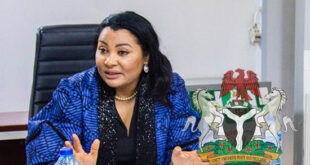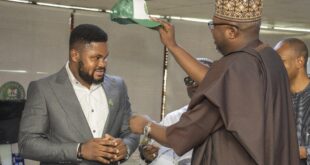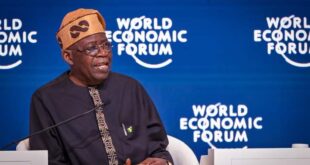Human rights activist, Femi Falana has urged the Federal Government to renew its currency swap with China to revitalise Nigeria’s comatose economy.
Falana also accused the International Monetary Fund (IMF) and the World Bank of conniving with the Central Bank of Nigeria to exasperate currency swap with China by promoting the US dollar.
He, then, advised that the country should follow in the steps of other countries and join the BRICS bloc (Brazil, Russia, India, China and South Africa) of emerging economies to launch another international currency.
Falana made this known in a statement titled, ‘Why Nigeria must join BRICS’, released on Monday.
He blamed the global financial institutions for promoting the dollar in Nigerian “While other nations are making arrangements to promote their local currencies.”
The legal giant said, “About five years ago, the Federal Government of Nigeria and China entered into a currency exchange agreement.
“The transaction, which was valued at Renminbi (RMB) 16 billion or N720 billion was aimed at providing adequate local currency liquidity to Nigerian and Chinese industrialists and other businesses, thereby, reducing difficulties encountered in the search for the United States Dollar.
The swap was also designed to improve the speed, convenience and volume of transactions between the two countries.”
“But the International Monetary Fund and the World Bank which superintend the Central Bank of Nigeria have colluded with the Central Bank of Nigeria to frustrate the currency swap
“The purpose of the economic sabotage is to promote the dominance of the United States Dollar in Nigeria.
“Even though Nigeria has since become an important source of oil and petroleum for China’s rapidly growing economy, the Federal Government has continued to demand for payment in Dollar instead of Naira,” he added.
He continued, “While other nations are making arrangements to promote their local currencies, the Federal Government has continued to dollarise the Nigerian economy.”
While reviewing the countries that have shown interest in aligning with BRICS, he said they “have concluded plans to launch a new international currency to be used for cross-border trade by the member nations.”
“Ahead of the August summit of the BRICS scheduled to hold in South Africa, a total of 24 nations are now looking to build a strategic alliance that will challenge the US dollar’s decades-long role as the world’s reserve currency.
The 24 nations include Saudi Arabia, Iran, Argentina, the United Arab Emirates, Algeria, Egypt, Bahrain, Indonesia and a couple of African countries.
“This trend to reject neo-liberal orthodoxy policy formulation is captured by the South Korean development economist of the University of London, Ha-Joon Chang, in his recent book, “Edible Economics” as follows: “The rejection of the neo-liberal Washington Consensus policies has been less visible in other parts of the developing world, such as Asia and Africa.
“In Asia, it was mainly because the countries in the region had not followed the Washington Consensus policies in the first place as rigidly as did the Latin American countries. Their generally good economic performance has meant that relatively few Asian countries have had to borrow heavily from the Washington institutions, making it less necessary for them to adopt neo-liberal policies.”
“Moreover,many Asian countries have had a less ideological approach to economic policies, so, even when they adopted neo-liberal policies, those policies were usually not implemented in their extreme forms, as they were in Latin America.
“The African countries, even though they have suffered even more than did the Latin American countries from the Washington Consensus policies, have found it more difficult to openly reject them, given their greater dependence on the Washington institutions for financing.
Even so, in the last decade or so, there has been an increasing recognition across the African continent of the need for a much more active role for the state than what is recommended by the Washington Consensus.”
Falana pointed out, “The point at issue is that the Nigerian state henceforth should be more active in giving a pro-people direction in the political economy. Nigeria should also take a lead in the execution of the African Union (AU)’s project of the African Continental Free Trade Area (AfCFTA) which took effect two years ago. The country should strive for the benefits of promoting trade at such a regional level as an alternative to the increasing dollarisation of a vulnerable economy.”
Imploring the FG, he said, “So, instead of the failed redesign of the Naira the federal government should take urgent steps to save the Naira by renewing the currency swap between Nigeria and China. Furthermore, similar agreements should be undertaken with other friendly nations so that Nigeria can pay for imports in Naira. In particular, buyers of Nigeria’s crude oil and natural gas should henceforth be made to pay in Naira.
“At the same, the federal government should join forces with the BRICS to promote a new international currency. This is in line with section 19(e) of the Constitution, which has imposed a duty on the Government of Nigeria to promote “a just world economic order
 The Commerce Africa African Reneissance
The Commerce Africa African Reneissance




